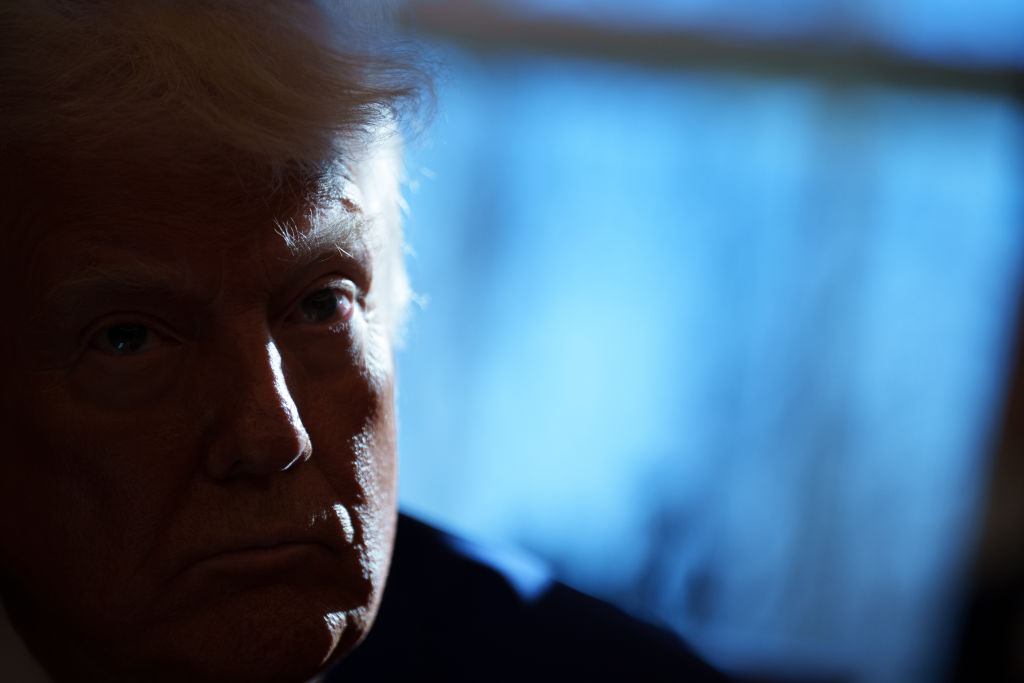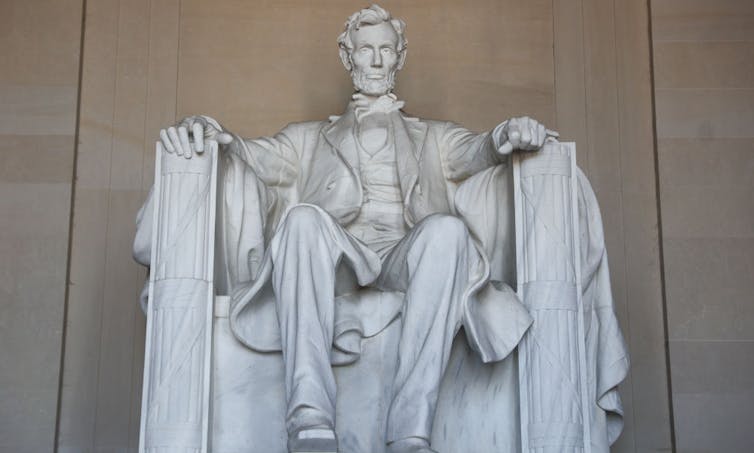 A statue of Abraham Lincoln, the 16th president of the United States, is prominently located in the Lincoln Memorial in Washington. Historians have consistently awarded Lincoln, often referred to as the Great Emancipator, their highest accolades due to his exceptional leadership during the tumultuous times of the Civil War.
A statue of Abraham Lincoln, the 16th president of the United States, is prominently located in the Lincoln Memorial in Washington. Historians have consistently awarded Lincoln, often referred to as the Great Emancipator, their highest accolades due to his exceptional leadership during the tumultuous times of the Civil War.
Jakub Porzycki/NurPhoto via Getty Images
As we contemplate the legacy of former President Joe Biden, a crucial question arises: how will future generations of Americans perceive his four-year term in office? Understanding this future perspective requires us to reflect on the broader context of presidential legacies and the evolving criteria by which they are judged.
Every American president inevitably finds their place in the annals of history. Over time, historians? evaluations of presidential performance have shown remarkable consistency. However, the rankings of certain presidents have shifted as societal values and historians? interpretations evolve, highlighting the dynamic nature of historical assessment.
Since the inception of presidential rankings, beginning with Arthur Schlesinger Sr.?s groundbreaking survey in Life magazine in 1948, historians have sought to categorize presidents based on their perceived effectiveness. This inaugural study identified Presidents Abraham Lincoln, George Washington, Franklin D. Roosevelt, Woodrow Wilson, Thomas Jefferson, and Andrew Jackson as ?great.?
Conversely, at the opposite end of the spectrum, Presidents Ulysses S. Grant and Warren Harding were designated as ?failures,? illustrating the stark contrast in historical evaluations.
Numerous subsequent surveys have continued this tradition of ranking presidents, including a notable 1962 survey conducted by Arthur Schlesinger Jr., which observed a decline in Jackson’s ranking into a ?near great? category.
How Evolving Perspectives Influence Presidential Rankings
The surveys reflect a significant shift in Americans? social attitudes, which have implications for electoral politics and governance. However, the methodologies employed in these surveys can vary. Some surveys focus solely on ranking presidents, while others delve deeper, assessing specific aspects of leadership such as economic policy and international diplomacy.
Despite the overall stability of ratings?especially among top-ranked presidents like Lincoln, Washington, and Roosevelt?some notable shifts have emerged over time. For instance, C-SPAN’s four surveys on presidential leadership reveal changes in historians? assessments, demonstrating how perceptions can evolve with new historical contexts.
Beginning in 2000, C-SPAN has polled esteemed historians following each presidential transition. Consequently, surveys were conducted in 2009, 2017, and 2021, with a forthcoming 2025 survey set to evaluate Biden’s presidency.
These surveys provide a comprehensive ranking of presidents, along with evaluations in ten distinct categories: public persuasion, crisis leadership, economic management, moral authority, international relations, administrative skills, relations with Congress, vision and agenda setting, pursuance of equal justice for all, and overall performance within the historical context of their presidencies.
Throughout these assessments, Lincoln consistently emerges as the highest-ranked president, while his predecessors Franklin Pierce and James Buchanan, known for their sympathetic views toward slavery, along with Andrew Johnson, a proponent of white supremacy, consistently rank among the lowest.
In the 2021 C-SPAN survey, Donald Trump debuted near the bottom, securing the 41st position out of 45 presidents. The evaluation of his first term, spanning from 2017 to 2021, may be subject to change in the upcoming 2025 survey, which will assess his presidency once he has departed from office.
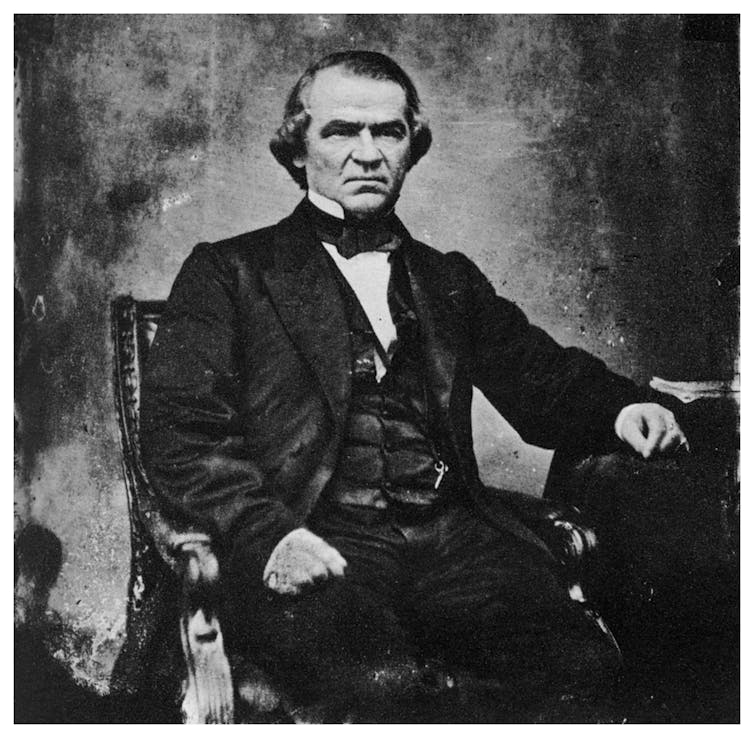 President Andrew Johnson, who served as Abraham Lincoln?s vice president and successor, vetoed crucial legislation aimed at assisting African Americans during the Reconstruction era.
President Andrew Johnson, who served as Abraham Lincoln?s vice president and successor, vetoed crucial legislation aimed at assisting African Americans during the Reconstruction era.
The Print Collector/Hulton Archive via Getty Images
Defining Characteristics of Effective Leadership
As a social psychologist specializing in leadership studies at the University of Richmond?s Jepson School of Leadership Studies, I believe that these surveys can be effectively understood through the lens of psychologist Dean Keith Simonton?s model for evaluating presidential performance. Simonton’s model posits that historians typically view leaders?presidents included?favorably when they embody a deeply rooted archetype of strength, activity, and goodness.
This archetype shapes their perception of presidential attributes and events that signal effective leadership. Factors such as the duration of presidential service, whether the president was a war hero, and the circumstances surrounding their assassination contribute to this image. In essence, these elements can elevate a president?s standing in historical evaluations.
Conversely, historians tend to readily recall scandals, such as Richard Nixon’s involvement in the Watergate scandal and Harding?s connections to the Teapot Dome affair. These negative attributes detract from their overall image as effective leaders, as evidenced by Nixon and Harding’s rankings of 31st and 37th, respectively, in the C-SPAN 2021 survey.
The Role of Race in Historical Evaluations
In contemporary assessments, the positions of presidents on issues of race and racism have emerged as critical factors influencing historians? evaluations. For instance, Woodrow Wilson’s surprising initiatives to segregate federal offices and the military have gained increased attention as scholars investigate this aspect of his presidency.
These actions may overshadow Wilson’s international idealism, which previously garnered positive recognition for prioritizing morality over material gain. As a result, Wilson is no longer considered one of our ?great? presidents. In Schlesinger Sr.?s 1948 survey, he ranked fourth among 29 presidents, but by 2021, historians placed him 13th out of 45 in the C-SPAN survey.
Andrew Jackson experienced a significant decline in rankings, dropping from 13th place in the 2000 survey to 22nd in 2021. His commitment to the forced removal of Native Americans from Southern and Midwestern states?a prominent and contentious topic in today?s political discourse?further complicates his historical legacy.
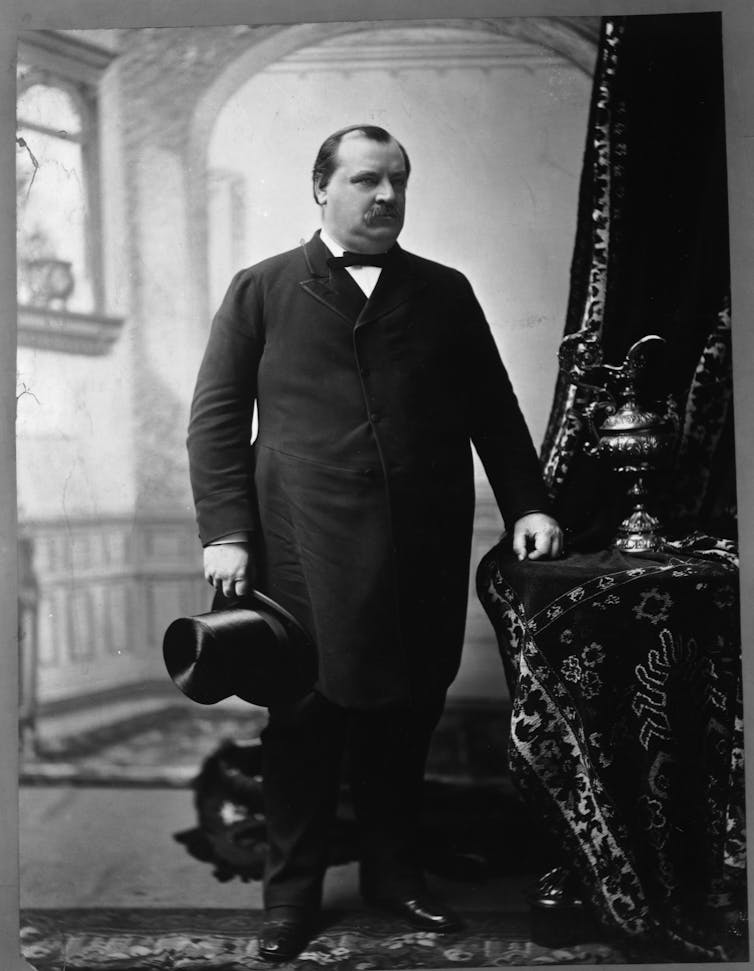 History has not been kind to President Grover Cleveland (1885-1889 and 1893-1897), who resisted initiatives to integrate schools and extend voting rights to African Americans.
History has not been kind to President Grover Cleveland (1885-1889 and 1893-1897), who resisted initiatives to integrate schools and extend voting rights to African Americans.
Library of Congress/Corbis/VCG via Getty Images
A number of other presidents, including James Polk, Zachary Taylor, Rutherford B. Hayes, and Grover Cleveland, have seen their standings decline due to their associations with pro-slavery policies or their failures to protect African Americans during the Reconstruction era.
Interestingly, Ulysses S. Grant, once disparaged as a failure in mid-20th century evaluations, has experienced the most significant upward shift in rankings within the C-SPAN surveys. He ascended 13 places from 33rd in 2000 to 20th in 2021. His historical standing has improved considerably, moving from near the bottom in earlier surveys to a more favorable position in recent assessments.
In the 2021 C-SPAN survey, Grant ranked sixth in the category of pursuing equal justice for all, following only Lincoln, Lyndon Johnson, Barack Obama, Harry Truman, and Jimmy Carter. This notable ranking underscores the importance of equal justice in shaping historical evaluations, potentially overshadowing any negative associations Grant may have had due to scandals during his administration, such as Crédit Mobilier and the Whiskey Ring.
The Significance of Moral Authority in Leadership Evaluations
This analysis indicates that historians employ straightforward criteria to evaluate presidents. Our perceptions are heavily influenced by an idealized image of leadership. A few key pieces of information regarding a president’s character or actions can dramatically alter their historical assessment.
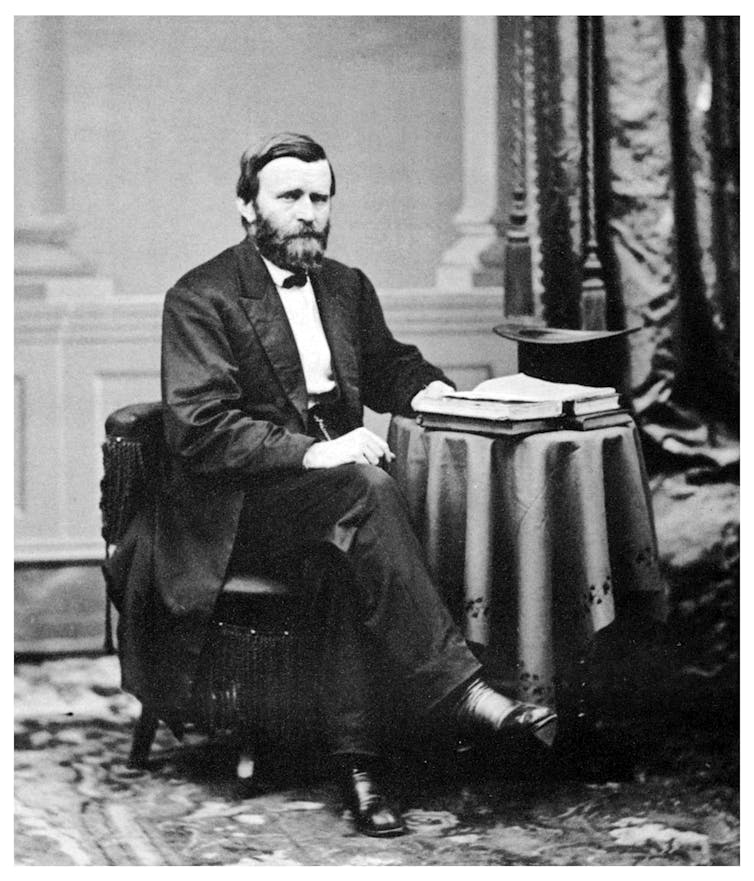 Ulysses S. Grant, once poorly regarded by historians, now receives high praise, particularly for advocating for the voting rights of African Americans.
Ulysses S. Grant, once poorly regarded by historians, now receives high praise, particularly for advocating for the voting rights of African Americans.
Print Collector/Hulton Archive via Getty Images
Presidents? moral convictions significantly influence how historians perceive their effectiveness. Notably, in the C-SPAN surveys conducted from 2000 to 2021, Grant?s ranking improved by 14 positions regarding ?moral authority,? rising from 31st to 17th. His ranking in the ?pursued equal justice for all? category also saw a noteworthy increase, moving up 12 slots from 18th to sixth. In contrast, Wilson and Jackson experienced declines of 13 and 18 places, respectively, in the moral authority category.
It is evident that moral judgments play a critical role in shaping historians? assessments of presidential leadership, underscoring the importance of ethical considerations in evaluating the legacies of our nation?s leaders.
Editor?s note: This article has been updated to reflect the 2025 transfer of power from President Biden to President Trump.![]()
George R. Goethals, Professor in Leadership Studies, University of Richmond
This article is republished from The Conversation under a Creative Commons license. Read the original article.


